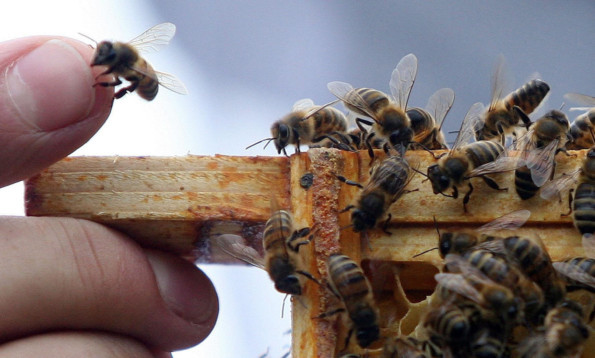Large numbers of honey bees were wiped out by the harsh conditions of last winter, according to a survey.
Around four in five beekeepers in Scotland (79%) lost at least one bee colony in the winter months of 2012-13.
The rate is around double that of the previous winter when two-fifths reported losses (39%).
The Highlands are said to have lost the most bees, with Tayside faring the best.
Bees succumbed to the weather, starvation and mites, according to the Scottish Government’s first health survey of the pollinators.
The health of the queen bee also influenced the loss of colonies.
But threats such as foulbrood disease that plague bees were not found outside known areas, the survey shows.
Rural Affairs Secretary Richard Lochhead recently announced £200,000 of funding to help bee farmers restock.
“Bees play a valuable role in our nation’s ecosystem, acting as pollinators for many crops and wild plants, as well as producing honey and other products,” he said.
“However, they can also highlight other issues which may be developing in our environment and that’s why we believe it’s important that we monitor bee health to ensure our bees stay healthy.
“The health survey published today shows that this winter has been a difficult one for many beekeepers and large numbers of colonies have been lost.
“The survey will provide invaluable information about the spread of diseases throughout Scotland and provide a useful baseline to allow us to monitor the health of our honey bees in future.”
Around 2,400 people keep bees in Scotland and there are a further 25 commercial bee farmers.
Those who took part in the survey filled in a questionnaire, inspected their own colonies and tested a sample of bees for disease symptoms.
